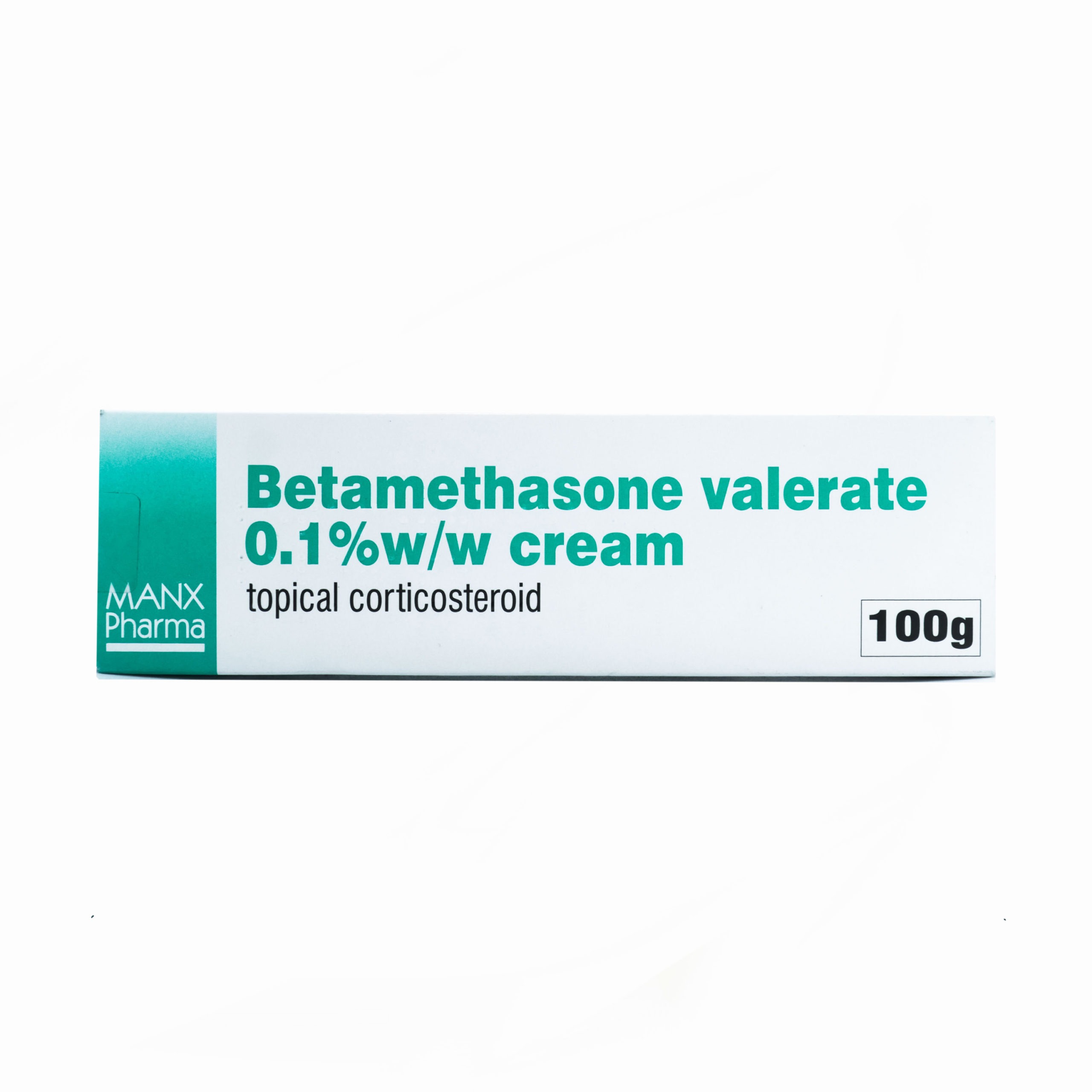Betamethasone 0.1%

Fastest delivery:
Order by 12:00pm
-

GMC and GPhC-regulated clinicians
Expert care from GMC and GPhC-regulated clinicians. Trust in professional medical advice and treatments tailored to your needs.
-

100% UK-based pharmacy
Our team of doctors and prescribers, and our support staff, are all UK-based.
-

Free support and advice
We're on hand to offer free support and advice by email and telephone (Mon - Fri 08:30 - 17:00).
-

GP-Led Prescribing
Expert care from GP-led clinicians. Receive professional, trusted medical advice and treatments tailored to your needs.
Description
What is Betamethasone 0.1%?
Betamethasone is a medication that is approved by the Food and Drug Administration for the treatment of a variety of skin and scalp conditions that cause inflammation and itchiness. Betamethasone helps to alleviate the symptoms that are associated with various skin conditions.
How Does Betamethasone Work?
The skin is the largest organ in the body that covers and protects other body organs from dehydration, bacteria and environmental temperatures. However, the skin can get irritated by stimuli, resulting in unpleasant reactions. The stimuli that can lead to the development of skin diseases can be a result of lifestyle behaviors, insect bites, viruses, genetics and environmental factors. When the body recognizes an inflammation, it releases chemicals that may cause the blood vessels to enlarge, resulting in swelling, itching and redness. Betamethasone works by preventing the release of these chemical substances that cause inflammation and swelling on the skin.
Some of the symptoms that can be treated by Betamethasone include eczema, lupus, arthritis, psoriasis, ulcerative colitis, multiple sclerosis, inflammation of the tendons or joints.
Warnings
- You must not dress the area under treatment with a bandage or clothing unless instructed by your doctor.
- Inform your doctor of any underlying allergic or medical conditions
- Inform your doctor of any prescription medication you may be taking.
- Inform your doctor of your pregnancy and breastfeeding status
- Do not use Betamethasone after its expiry date
- Do not use Betamethasone near a flame, heat or when smoking
- Betamethasone is only meant for external use, therefore, you must observe caution so that it is not accidentally ingested, placed in the eyes, injured, bruised, wounded or sensitive skins. If it does get on these areas, thoroughly clean them with water.
Directions
You must follow the directions given by your doctor when using Betamethasone.
If you are self-medicating, you must read and follow the instructions provided on the prescription label.
- Wash your hands and dry them thoroughly before and after using Betamethasone.
- Apply a thin layer of the medication evenly on the affected area, spread it and rub gently.
- Keep rubbing until the medication clears. You must not rinse it off immediately for optimum results.
- When using Betamethasone on the diaper area of an infant, avoid using tight-fitting pants or diapers.
Ingredients
Betamethasone dipropionate, propylene glycol, propylene glycol stearate, white petrolatum, and white wax.
Side Effects
Side effects include:
- Redness and itchiness of the skin
- Blistering or stinging
- Unwanted hair growth
- Small bumps on the skin
Long-term use may cause skin thinning, stretch marks, and possible suppression of adrenal gland function.
If you experience any severe or unusual symptoms, discontinue use and consult a healthcare professional.
FAQs
1. How long does it take for Betamethasone 0.1% to work?
You might notice an improvement in symptoms within a few days. However, the duration varies depending on the severity of the condition.
2. How often can I use Betamethasone 0.1%?
It is typically applied once or twice daily as directed by a doctor. Usage should be limited to short periods to avoid potential side effects.
3. Can I use Betamethasone 0.1% on my face?
Betamethasone should be used with caution on sensitive areas such as the face. It should only be applied under medical supervision due to the risk of skin thinning.
4. Can Betamethasone 0.1% be used for children?
It can be used for children but only under strict medical supervision and usually for a limited duration due to the higher risk of side effects in children.
5. Are there side effects associated with Betamethasone 0.1%?
Common side effects include skin irritation, dryness, and burning at the application site. Prolonged use may lead to skin thinning, stretch marks, and other more serious effects.


